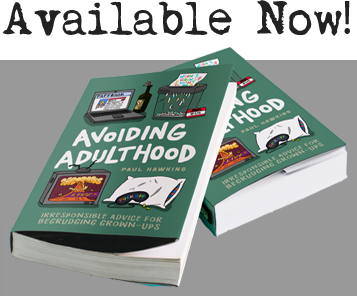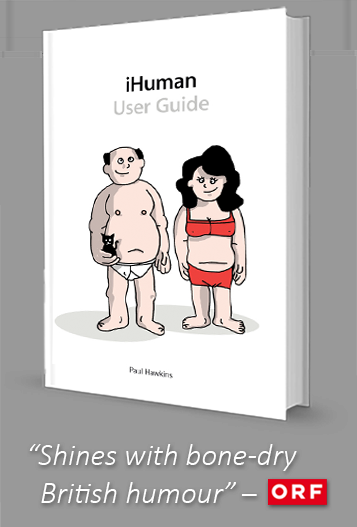
You Don’t Own You
In a brief moment of madness, I decided I would also write serious things, since it’s easier to bash words out on a keyboard when they’re just your mad opinions, and you don’t have to come up with any jokes or structure. I responded to an ad online, before writing two things for some fucker who published them and never paid me. I leave it here for reasons of self-therapy.
You Don’t Own You
The heading for this issue is Sex and Politics, and the fact that we link those two concepts so casually should be a much greater cause for concern for thinking people than whatever they consider to be the twisted nature of their relationship in modern society. Currently, there are many areas of sex and sexuality that the government mediates.
Firstly, it decides the age of consent.
It criminalises the act of prostitution in all but one state (Nevada). You can buy a person a drink, or a meal, or a cinema ticket, with the explicit intention of having sex with them, but if you skip any of those phases, you’re now in the realm of government intervention.
It intersects abortion, where the crux of any controversy is centered around the states’ or government’s decision about the point at which a collection of cells has ‘a soul’, or when a foetus is deemed ‘viable’ for the same protection by the state as a born individual.
There are still laws regarding same-sex relationships, of course, yet not same-sex friendships, so presumably the fact that the penis goes in a hole, and which hole that penis goes in, is a political issue as well.
It regulates pornography, whatever it registers as public indecency, and many other realms where actions or materials are deemed to be corrupting of society’s moral fabric.
But what should the government have to do with all of this consensual sexual activity?
It’s easy to argue, nothing.
There is a greater perversion at the heart of society, and one that goes unnoticed, unexamined, and certainly untroubled by the majority of people. It is that we are owned.
It might sound initially dramatic or hyperbolic, but it is difficult to argue against the property status of our bodies, considering the extent to which the state now claims authority over some of our most personal decisions. When a person is born, despite the absolute accident on their part of every factor involved, they find themselves a member of a nation; under a government; in essence, one part of an involuntary social contract that is thrust upon them as newborns — between themselves-as-individuals and an institution they did not, and could not, choose.
The many myths of democracy are, of course, supposed to make balance of this equation, but it should be obvious to any one how much an individual’s actual miniscule ‘contribution’ is diluted and corrupted by the late stage that the laws are written that will from that point on decide what they can and can’t do with their own bodies between the distinctions of legal and illegal; or, to re-frame that spectrum, when the threat, theft, or violence of police enforcement is justified by others to be used against them.
It’s important to remember it is that which we are discussing whenever we debate the legality or �criminality of a sexual act or preference; that we are deliberating whether we want to sanction a tax-funded police force to use as much aggression as deemed necessary to administer parts of society that do not, and can not, directly affect us. What is a law, but the direction we want to point the police?
The US Constitution, an increasingly worthless bit of paper, historically remembered for expressing an idolised myth, supposedly guaranteed its citizens a legal framework based on the well-intentioned idea that “the government that governs best is the government that governs least.” It was supposed to entrench personal freedom in law, while still performing what were seen to be the inescapable roles of government; road-building, protecting property rights, contract-enforcement, and other perceived ‘problems of the commons.’ It was drawn up under the knowledge, as George Washington believed, that the state is “a dangerous servant and a terrible master.”
That freedom, the Right-wing tell us, made America rich. (Did slavery help?)
Two hundred years later, though, and the USA is the largest, most powerful state the world has ever known, swollen grotesquely because of, and now in spite of, those ideals; the inevitable consequence of a wealthier populous, a deeper tax pot, the parasitic and ideological classes that could dig their hands in to it, and the psychological addictiveness of political power to those seeking to gain and expand it.
A far cry from its original ‘libertarian’ beginnings, it is now long accepted by its electorate that the United States government has the authority to control what its citizens do with their bodies, irrespective of how little it affects the well-being of others, or even society as a whole. More troubling is the extent to which state intervention claims to justify itself by solving social problems, and yet how it does nothing but obviously exacerbate them.
Take the example of prostitution, for example, where the government’s stated position is almost unanimously against it, presumably in the alleged puritan interests of society. Not only has the illegality of prostitution never prevented it (obviously — how could you prevent an act so easily made private?), but it has also pushed the activity of paid, consensual sex into the darker boundaries of the black market, where the most susceptible involved (those for whom their body is the last possible resource they can leverage economically) are miles away from safety and regulation, prone instead to increased risk, violence, disease, and under the criminal jurisdiction of pimps and gangsters.
It’s the same situation with drugs too, of course, with a publicly-funded war against ‘them’ that has done nothing in its seventy-odd tax-guzzling years to reduce the incidences of drug use – again, its stated aim — but has pushed a whole realm of fully expected behaviour into criminal territory. In the name of protecting its citizens, the government’s ‘War on Drugs’ (i.e. a war on a noun) has caused the gangs which terrorise their streets and the streets of other countries by creating the incredible demand that only a black market could fill.
The lessons of prohibition died young and quietly, it seems, to the same people in the position to enact it.
The response to both of these non-violent behaviours (and many more besides), of course, has the same basic principle at its core: that the government can control what people do voluntarily with their own bodies; that the government can make its citizens involuntarily fund the control of what other people do voluntarily with own their bodies; and that the government can make its citizens involuntarily fund and fail to control what other people do voluntarily with own their bodies.
Meanwhile, while high taxes wash like water over stones, the kind of money that people are given no choice but to inject into the sleazy network of veins beneath society makes criminals’ �rich, gang warfare inevitable, and murder competitive.
There is not even very much that the average person can do to stop its rampant government and police force from continuing to pursue these rock-carved vendettas, in spite of all the complete failures by their own marketed objectives, except wince every month as the bill lands hard on their paychecks. It’s a sad truth, but a real one, that we will have only as much choice to keep paying for the guns, prisons, and courts, as the people do who end up, somewhere down the line, on the wrong side of them.
We are, all of us, owned.




